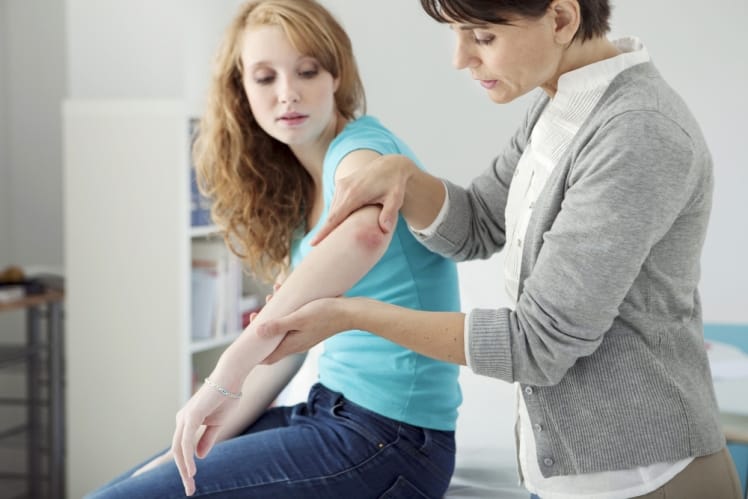What is psoriasis? Psoriasis is a common skin condition affecting approximately 8 million people across the United States. It comes in various forms, affecting different parts of the body, and is chronic in nature. Often returning at inconvenient times.
What is Psoriasis
Psoriasis is a skin condition where the skin cells regenerated and die rapidly, building up on the surface of the skin. As the skins life cycle is shortened the body doesn't shed the dead cells quickly enough as it normally does. The extra surface skin cells can become irritated and inflammed causing the red patches that most people associate with Psoriasis. In some cases the patches can be quite painful as the skin is so inflammed.
What Causes Psoriasis
The exact mechanism in place to cause Psoriasis isn't fully understood, however, it is believed to be related to the bodies immune response and the bodies normal skin healing process. It is believed that the bodies T-Cells begin attacking healthy skin cells as if they were fighting an infection or healing a wound. This causes the bodies immune system to kill its own healthy skin cells while at the same time triggering the growth of new healthy skin cells to replace them. As this process runs away, the dead cells are pushed to the skins surface in a matter of days instead of weeks as in the normal skin regeneration cycle.
Psoriasis Triggers
It is believed that Psoriasis can be trigger several ways. In some cases these triggers are easily identified and in other cases it isn't so straight forward. Some common known triggers of psoriasis are bacterial infections (like strep throat or skin infections), vitamin d deficiency, skin damage (injury, insect bites, sun burns), and stress. Often something sets the bodies immune response into gear and instead of shutting down when done fighting the initial issue the immune response continues with it attacking healthy skin cells.
Psoriasis Risk Factors
Most people are at risk of developing psoriasis however there are several factors that may make you more susceptible to developing psoriasis. First, there is evidence of a strong genetic component to developing psoriasis. Your chances of getting psoriasis are greater if just one of your parents has psoriasis and if both parents have psoriasis your changes are greater still. Second, people with compromised immune systems have a great chance of developing psoriasis. This includes people with HIV, recurring strep throat infections, or other recurring infections.
See Your Doctor
There are many complications that can come from psoriasis which is why it is important to speak to your doctor to put together a treatment plan if you are developing symptoms. The best way to avoid major complications related to psoriasis is to keep the symptoms under control and prevent major flare ups.
Psoriasis Complications
Complications from psoriasis can be quite serious. By having psoriasis you are at a greater risk of developing these other diseases: obesity, Type 2 Diabetes, Psoriatic Arthritis, Parkinson Disease, Kidney Disease, High Blood Pressure, as well as a host of other complications.
Psoriasis Scalp Pictures
Psoriasis commonly affects the scalp. Here are some photos of scalp psoriasis.
Psoriasis Finger Nail Pictures
Psoriasis commonly affects the finger nails. Here are some photos of finger nail psoriasis.

